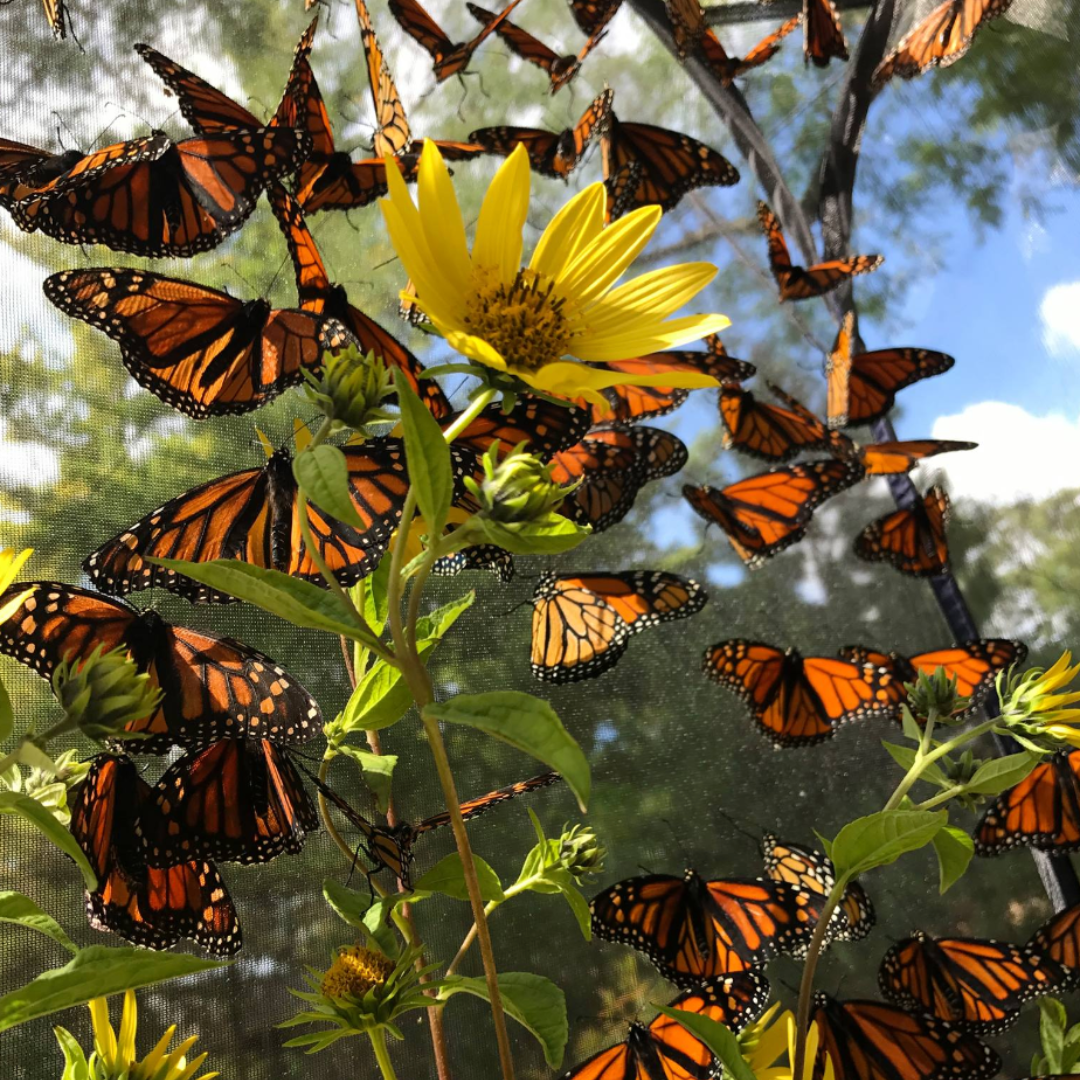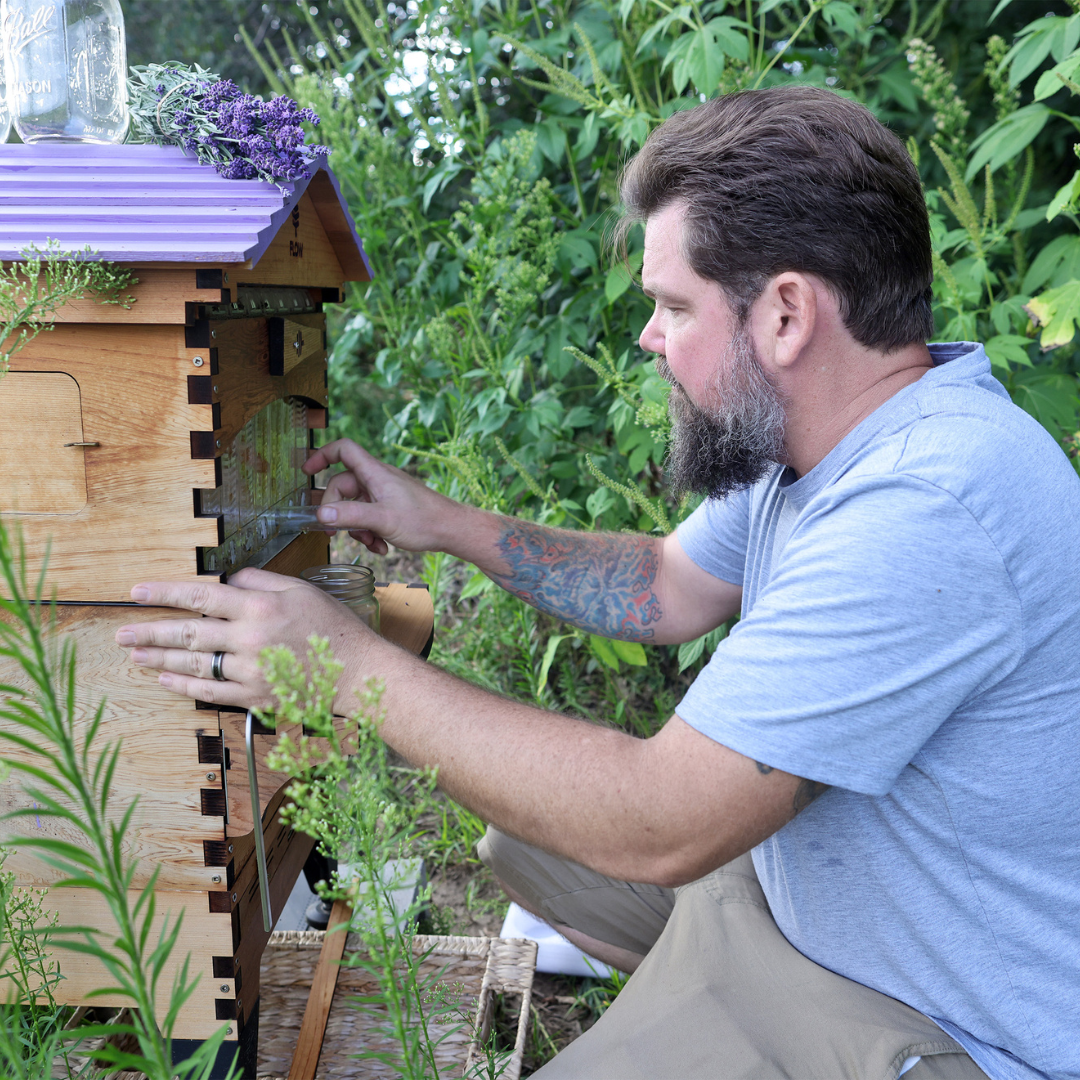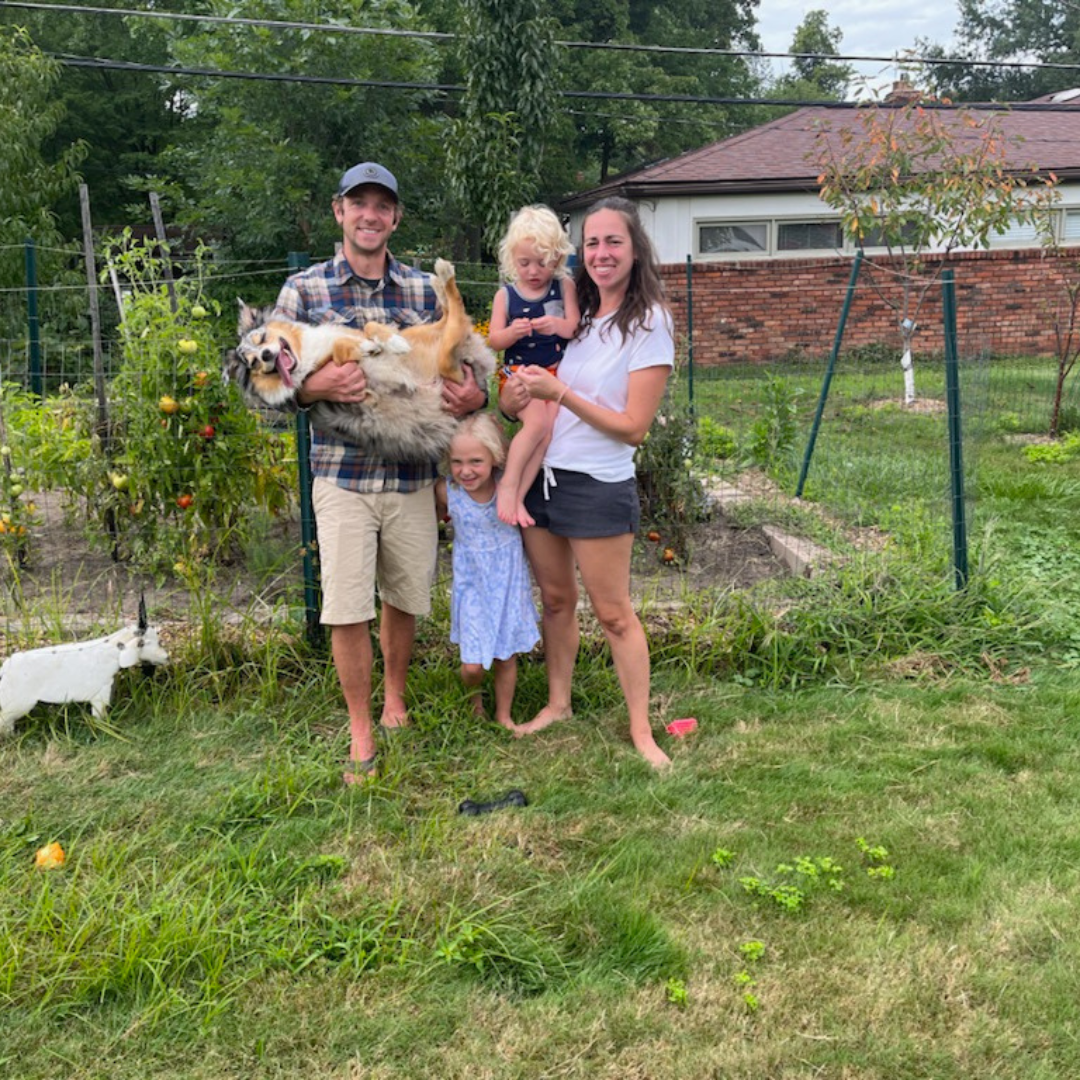Your Cart is Empty
The Upside of Downs – enriching individuals and the community’s lives through connection, farming and beekeeping
by Flow Hive 5 min read
“The barriers we see in our world are not just one-way against people who have unique challenges, those barriers exist and make it harder for all of us to engage and learn about people different from ourselves.”

Below, we speak with the Meier family of Mulberry Lane Farm in California, about their program “Upside of Downs”. Ron, Karen, Tom and Steve, along with a number of volunteers, run “The Upside of Downs” program, providing people with a healthier lifestyle and a more inclusive perspective through farming, seed-saving, beekeeping and sharing experiences. We also hear from Jon, a passionate educator and their mentor beekeeper, who has been helping along the way and upskilling Ron.
Ron and Karen, can you tell us a little about the Upside of Downs and Mulberry Lane Farm – how does the program work?
"The Upside of Downs" program at Mulberry Lane Farm was designed to enrich and promote the experiences of some amazing people. Several differently-abled adults contribute their time and effort to Mulberry Lane Farm while dealing with challenges related to disabilities including Down Syndrome and Autism. They have found a special place at our farm where they connect with the community and help feed countless people in our area. We collect and sort seeds for online sale, prepare fresh produce for the local farmers markets, and of course care for our special pollinators!
How important is it for differently abled communities to have the opportunity to engage with nature? How does the program break down some of those barriers to access?
The opportunity for anyone to engage with nature and in particular our food sources, remains vital to our overall health and ability to live in harmony with each other as well as our environment. We and the volunteers continue learning about and tasting the different varieties of fruits and vegetables grown on the farm. As enjoyable as that is, the experience of working in the dirt and facilitating the growth of the plants and animals provides a real life connection to how everyone can contribute in some way. Growing dozens of species from all over the world in the dry southern California climate can be challenging, but with the right approach and a gritty work ethic, we’ve found a way to give back while enjoying a worthwhile lifestyle. Our commitment to providing access and opportunity to anyone who is interested in volunteering allows neuro-typical participants to also benefit as a result – the Upside of Downs works to connect people from many walks of life and all abilities.
What are some of the major benefits or transformations you’ve witnessed in participants through the program?
The biggest thrill has been seeing Steve, Tom, and our close friend Andre all get in the bee suits and visit the hives with our mentor beekeeper, Jon. These three have had a healthy and understandable respect for bees which typically meant they would not want to get close to the hives for any reason. But now that they have enjoyed some honey and see how the Flow enables them to harvest a little bit of their own, they are excited to learn more and actually participate in the care of the apiary. Jon has been thrilled to take them to the hives, teach the boys about how the bees collect resources from miles away, and how once it is cured honey can last thousands of years. Everybody can get bored or stuck in a rut at some point in their life so adding the beehives to the farm created a whole new opportunity to learn through practice and develop a new skill set that supports the mission of Mulberry Lane Farm and The Upside of Downs.

Jon, as a beekeeper and a trained educator, how do you see the act of beekeeping complementing the Upside of Downs program? Have there been any surprising or interesting outcomes for students being able to connect and learn about bees?
My experience and approach as a public school teacher [was to] always included elements of science and nature, regardless of the subjects I taught. We are irrevocably connected to the natural world around us and so many students are already interested and passionate about nature anyways, so I found it to be an obvious element to include in my lessons. Beekeeping requires patience, fortitude, toughness and humility, which is why it serves as such a great platform for developing young students' skills they will undoubtedly utilize in their lives. Overcoming adversity and obstacles that are out of your control remains a central theme to my work in beekeeping, teaching, and parenting.
I can't say I am surprised that the students and volunteers at the farm get excited about the honey, but it is certainly motivating to keep working at – not just taking care of – the bees. It also provides opportunities for participants to engage and learn in whatever ways they feel most comfortable. The farm’s Flow Hive will be a game changer in that way; prior to this technology, harvesting honey would have been much too labor-intensive, messy, and somewhat dangerous for those individuals who are more vulnerable to negative reactions to intense stimulation. I am so excited to have program participants crank that honey harvest handle sometime soon and see that beautiful liquid gold flow right into the jars!
Ron, Karen, you've recently added a Flow Hive to the farm’s apiary – how have the volunteers/farmers enjoyed learning the Flow Hive system?
Watching videos about the Flow Hive, assembling the hive, and installing the bees has been a team effort which facilitates ownership of the entire effort and provides a platform for the next steps of caring for our bees. Beekeepers will tell you, we never stop learning, so you better be able to accept some failures along the way as well as some painful stings. So the fact that so many of the people at Mulberry Lane Farm have already contributed to this process means we have a team of beekeepers who are committed to doing whatever the bees need from us. Tom, Steve, Bill, Kathryn, and all of our differently-abled volunteers show up every week ready to work – even though it is hard, they know it is worth it. I can’t wait to see what happens this coming spring.
How can the Flow community find out more about Upside of Downs and Mulberry Lane Farm?
Please check out our website and visit our Etsy store. We are always grateful for the generosity of others who support us with monetary donations to our non-profit organization. We sell fresh fruit and vegetables at the Camarillo Farmers Market, the Thousand Oak Farmers Market, and sell seeds from our farm to plant lovers all over the planet. Our programs are really about providing experiences that connect people from our community, enriching the lives of everyone involved. We are so appreciative of Flow for helping us do that in another way that was previously so much more difficult.
website: https://upsideofdowns.org/
Etsy store: https://www.etsy.com/shop/BrightHorizonSeeds
Instagram: @mulberrylanefarm.somis
Ways to support us include designating The Upside of Downs as your Amazon Smile charity, donating directly to the farm, and buying seeds from the Upside of Downs website or the Bright Horizons Etsy store.


Also in Customer and Flow Ambassador experiences

Plant it and they will come
by Flow Hive 4 min read
We speak with Lori Harris of Salt Creek Butterfly Farm in Western Springs, Illinois, about her work as a butterfly conservationist, educator and Flow Hive beekeeper. Lori's passionate about protecting pollinators and inspiring curiosity about nature in children and adults.
Read More
Paint it purple: the symbiotic relationship between a lavender farm and 40,000 bees
by Flow Hive 3 min read
We chat to lavender farmer and Flow Hive beekeeper Kirby Bivans from the Old School Farmstead in Wisconsin, about what led the Bivans family to embark on this colorful endeavour and how bees have become a vital part of their business.
Read More
Garden remedy: why growing your own food is the bees knees
by Flow Hive 4 min read
We speak with Paul Jones from Ohio, USA, a passionate gardener and Flow Hive beekeeper who educates families in the art of the green thumb. His focus is on sharing the joy of growing home produce and making gardening feel more accessible (and fun!) for everyday families.
Read More